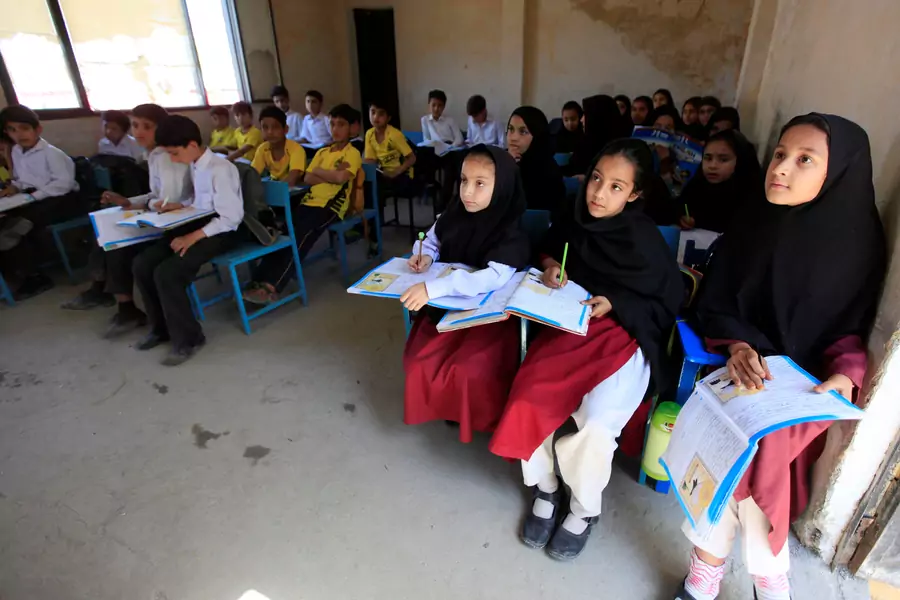Malala and Investing in Pakistan’s Breakthrough Generation, From the Classroom to the Workplace

Nobel Peace Prize laureate and girls’ education advocate Malala Yousafzai returned to Pakistan this past week, her first visit to her home country since she was shot by Taliban militants in 2012. Returning at age twenty to meet with Prime Minister Shahid Khaqan Abbasi and announce $6 million in funding for education projects through her Malala Fund, her trip is an important moment for both girls’ education and women’s empowerment in Pakistan. With Malala now graduated from high school and studying for her future career, Pakistan’s government and international donors have an opportunity to similarly support all Pakistani girls and women from the classroom to the workplace.
Helping Pakistan’s girls to learn, lead, and one day work
Even with laudable increases in education spending and twelve years of compulsory education through age sixteen, Pakistan still has thirteen million girls out of school. On average, girls spend less than four years in school and fare worse than boys in some of the most formative years for future earnings. By the time students get to upper secondary, the out-of-school rate for girls is 61 percent.
More on:
Even worse regional gender disparities hide in national data, as education budgets and delivery are primarily the responsibility of provincial governments in Pakistan. In Balochistan and FATA, 75 percent of girls are out of school. A common explanation given by Pakistani families in rural provinces as to why they don’t send their girls to school is that both the quality of education and their daughter’s job prospects post-graduation are poor. The problem is they are right.
Even when girls are in school, they often aren’t learning. Although global north donors continue to press Pakistan to increase domestic education spending, work by researcher and The Citizens Foundation advisor Nadia Naviwala points instead to the culprits of low educational quality, rote memorization and absentee, inadequately trained teachers whose salaries make up close to 80 percent of Pakistan’s education spending.
The result: over 55 percent of women over the age of fifteen in Pakistan are illiterate, unable to achieve their potential and unprepared for their future careers.
Improving economic opportunities for Pakistani women after graduation
Even if girls like Malala are lucky enough to access a quality education and graduate from secondary school, their prospects for earning a living remain dim. In 2016, the World Economic Forum’s Global Gender Gap Index ranked Pakistan 143 out of 144 countries on women’s economic participation and opportunity, followed only by Syria.
Equity and safety at work and in society remain elusive for the majority of Pakistani women. Released this past week, the World Bank’s 2018 Women, Business and the Law report found that women make up only 22 percent of Pakistan’s total labor force. An Asian Development Bank study in 2016 reported that four out of ten Pakistani women say they cannot work because a male family member will not allow them to do so. These gender norms even affect women who earn university degrees, as only 25 percent of women college graduates in Pakistan work outside the home.
More on:
And when Pakistani women do work, they aren’t permitted to do so in the same industries as men and they have no legal protection from gender-based discrimination in the workplace. When women attempt to build financial standing or start a business, they face challenges men don’t. From different legal restrictions on registering and operating a business to women not being able to apply for a national identity card the same way as men, a step vital to opening a bank account, the playing field is not level. Only 5 percent of Pakistani women over the age of fifteen have a bank account, compared to South Asia’s average of 37 percent.
Women’s empowerment drives economic growth
In recent years, Pakistan’s government has made important efforts to improve both girls’ education and women’s economic inclusion. Even as traditions that discriminate against women resist change, there are clear opportunities to better girls’ educational outcomes and economic empowerment when girls become women ready to work.
Increased secondary school funding and educational quality for girls will not only ensure their fundamental human right to learn, but also prepare them to be productive contributors to Pakistan’s economy. Laws that treat women differently when it comes to workplace equity and safety, economic access and family law can be changed with political will. Pakistan’s federal and provincial governments should do so.
International donors have changes to make too, to both leverage aid funding to push for acceleration of gender equity and direct more funding to organizations that serve and are led by Pakistani women. Due to international non-governmental organization bureaucracy and budget complexities, many of these advocacy and direct service groups are considered “too small scale” for investment. This is a missed opportunity.
Like Malala, Pakistani women have long been fighting for change. Storied lawyer and human rights activist Asma Jehangir founded Pakistan’s first all-woman law firm, AGHS Legal Aid Cell, with her sister Hina Jilani, taking on family law that imprisoned abused women in marriages and societal practices that punished rape victims instead of their attackers.
Pakistani family law lawyer and digital rights advocate Nighat Dad founded her Digital Rights Foundation in 2012 to fight for women's rights and protect women from work and online harassment. And Pakistani organizations like Karandaaz focus on overcoming the barriers women face when they try to access financial services needed to better their lives. Should donors have any challenges finding Pakistani women to invest in, Malala easily gathered a large room full of them this week. With increased political will and support of local leaders, Malala and her sisters could well be the breakthrough generation of women in Pakistan.
 Online Store
Online Store